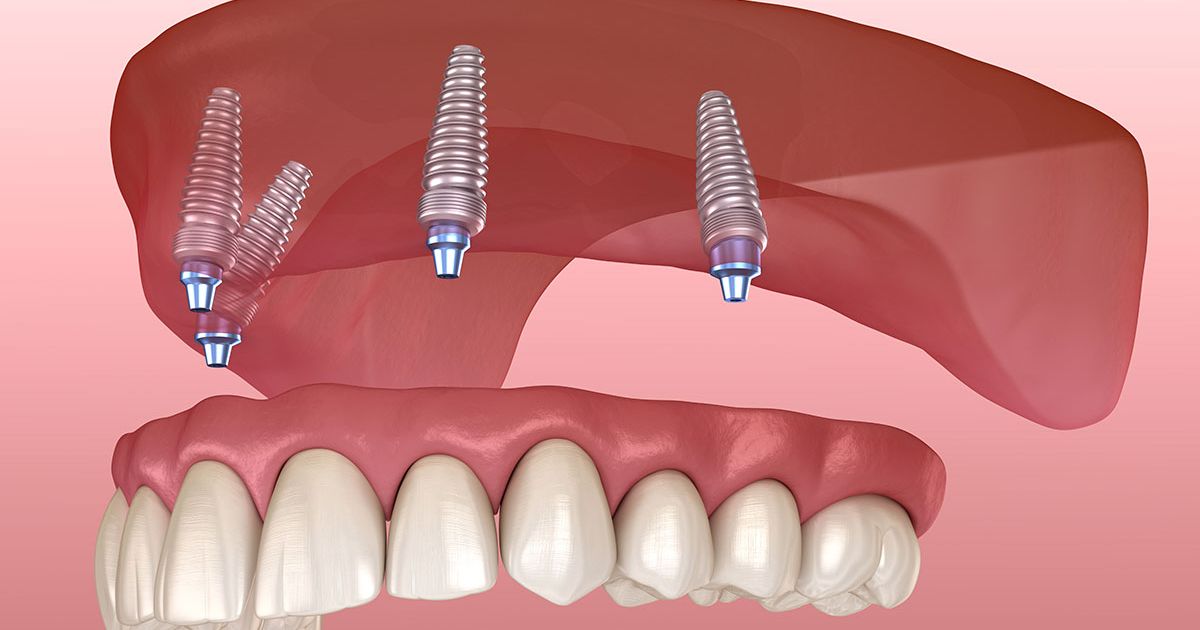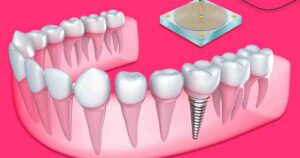The cost of full mouth dental implants is a significant consideration for individuals seeking comprehensive solutions to tooth loss or dental issues affecting their entire mouth. As a transformative treatment option, full mouth dental implants offer a permanent and natural-looking restoration that enhances oral function, aesthetics, and overall quality of life.
Navigating the financial aspect of this procedure requires a nuanced understanding of the various factors that influence pricing. From the number of implants required to the complexity of the case, as well as the quality of materials used and the expertise of the dental professionals involved, the cost of full mouth dental implants can vary widely.
Moreover, factors such as geographic location, additional procedures like bone grafting or sinus lifts, and any associated dental insurance coverage further impact the overall expense. This introductory exploration delves into the intricacies of the cost of full mouth dental implants, offering insights to help individuals make informed decisions about their oral health and financial investment.
How Much Do Dental Implants Cost?
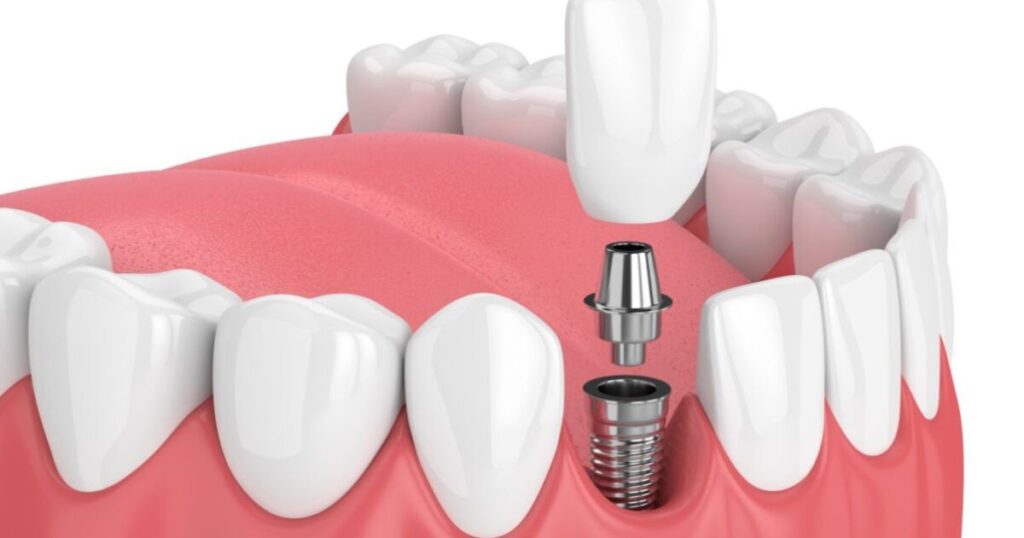
The cost of dental implants can vary depending on several factors, including the number of implants needed, the complexity of the case, the location of the dental practice, and any additional procedures required.
On average, a single dental implant can cost anywhere from $1,000 to $3,000 for the implant itself. However, this cost does not include other necessary components of the procedure, such as the abutment and crown, which can add another $500 to $3,000 per tooth. Therefore, the total cost of a single dental implant, including all components and procedures, typically ranges from $3,000 to $6,000 per tooth.
For individuals requiring multiple implants, the cost can quickly escalate. Full mouth dental implants, which involve replacing an entire arch of teeth with implants, can range from $20,000 to $40,000 or more per arch. This estimate includes the cost of all necessary implants, abutments, crowns, and any additional procedures such as bone grafting or sinus lifts.
It’s important to note that these are average cost estimates, and actual prices may vary based on individual circumstances and the specific details of each case. Additionally, dental insurance coverage for implants can vary, with some plans providing partial coverage for certain procedures.
Patients are encouraged to consult with their dental provider and insurance company to understand their coverage and explore financing options if needed. Ultimately, while dental implants may represent a significant investment, many patients find them to be a worthwhile long-term solution for restoring oral function, aesthetics, and overall quality of life.
Understanding the Importance of Full Mouth Dental Implants
Full mouth dental implants serve as a crucial solution for individuals grappling with extensive tooth loss or severe dental issues affecting their entire mouth. Unlike traditional dentures or partials, which can be cumbersome and may not offer the same level of stability and functionality, full mouth dental implants provide a permanent and durable restoration.
This comprehensive approach not only improves oral function, such as chewing and speaking, but also enhances aesthetic appearance and boosts self-confidence.
The Transformational Benefits of Full Mouth Dental Implants
The benefits of full mouth dental implants extend far beyond mere tooth replacement. With implants securely anchored into the jawbone, patients experience increased stability and comfort, akin to natural teeth.
This stability allows individuals to enjoy a diverse range of foods without restrictions, thereby promoting better nutrition and overall health. Moreover, the lifelike appearance of dental implants restores a natural smile, alleviating self-consciousness and improving social interactions.
Factors Influencing the Cost of Full Mouth Dental Implants
Several factors contribute to the overall cost of full mouth dental implants, making it essential for individuals to understand the various components involved. The number of implants required, the complexity of the case, and the quality of materials used all play significant roles in determining the final expense.
The expertise of the dental professionals performing the procedure, as well as any associated treatments like bone grafting or sinus lifts, can influence costs.
Geographic Variations in Full Mouth Dental Implant Costs
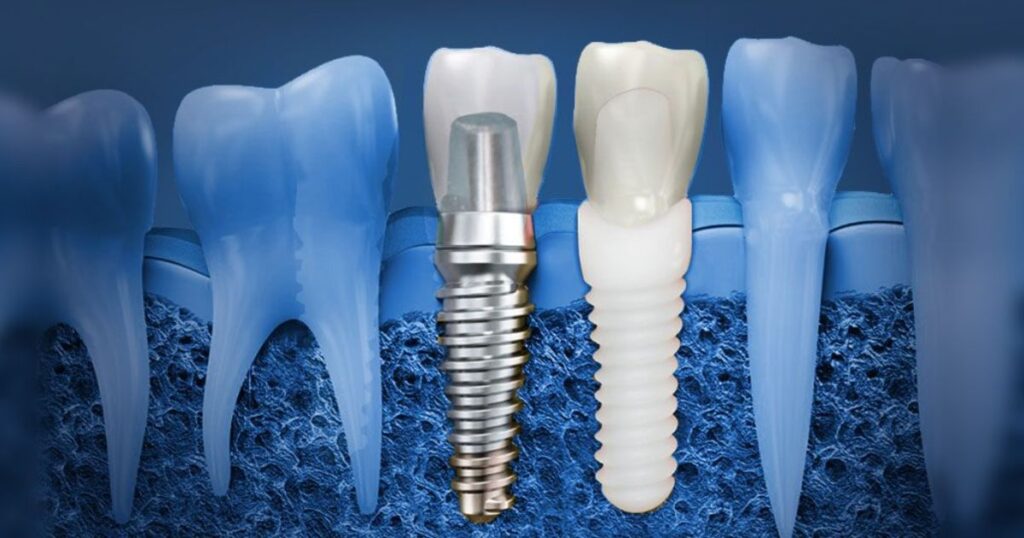
The cost of full mouth dental implants can vary significantly based on geographic location. Factors such as the local cost of living, competition among dental practices, and regional healthcare regulations all impact pricing.
Individuals residing in metropolitan areas or areas with a higher cost of living may expect to pay more for dental implant procedures compared to those in rural or less densely populated areas.
Exploring Payment Options for Full Mouth Dental Implants
Given the substantial investment required for full mouth dental implants, exploring payment options is crucial for many patients. While some individuals may choose to pay for the procedure out-of-pocket, others may seek financing options through dental financing companies or healthcare credit cards. Additionally, dental insurance coverage may partially offset the cost of implants, depending on the specific policy and coverage limits.
Evaluating the Long-Term Value of Full Mouth Dental Implants
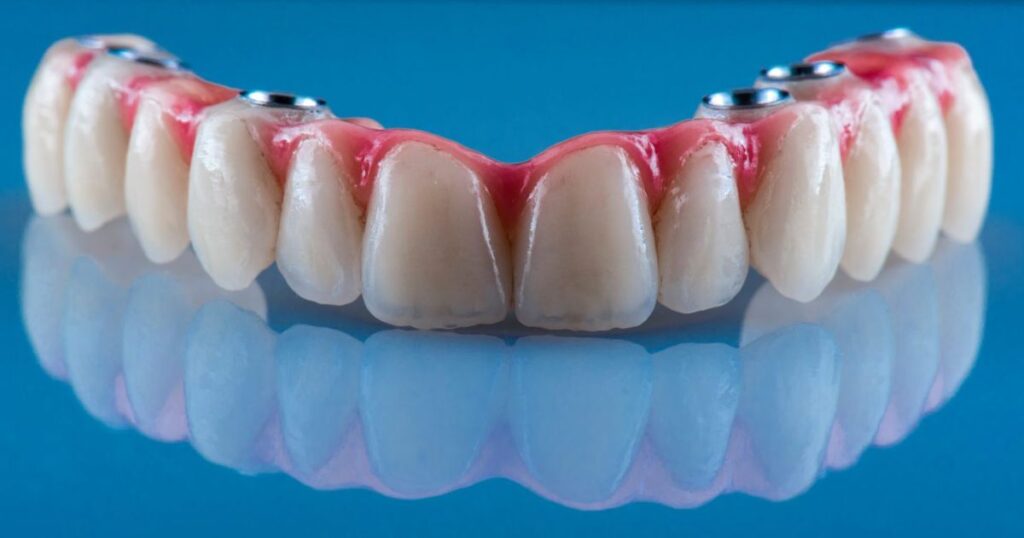
Although the upfront cost of full mouth dental implants may seem significant, it’s essential to consider the long-term value they provide. Unlike traditional dentures, which may require frequent adjustments or replacements, dental implants offer a permanent and enduring solution. When viewed as a long-term investment in oral health and quality of life, the benefits of full mouth dental implants often outweigh the initial expense.
Addressing Concerns About Full Mouth Dental Implant Costs
Some individuals may have concerns or reservations about the cost of full mouth dental implants. However, it’s essential to approach these concerns with a comprehensive understanding of the benefits and potential outcomes.
Consulting with a qualified dental professional can provide clarity on pricing, as well as personalized treatment plans tailored to individual needs and budget constraints.
Comparing Full Mouth Dental Implant Costs to Alternative Treatments
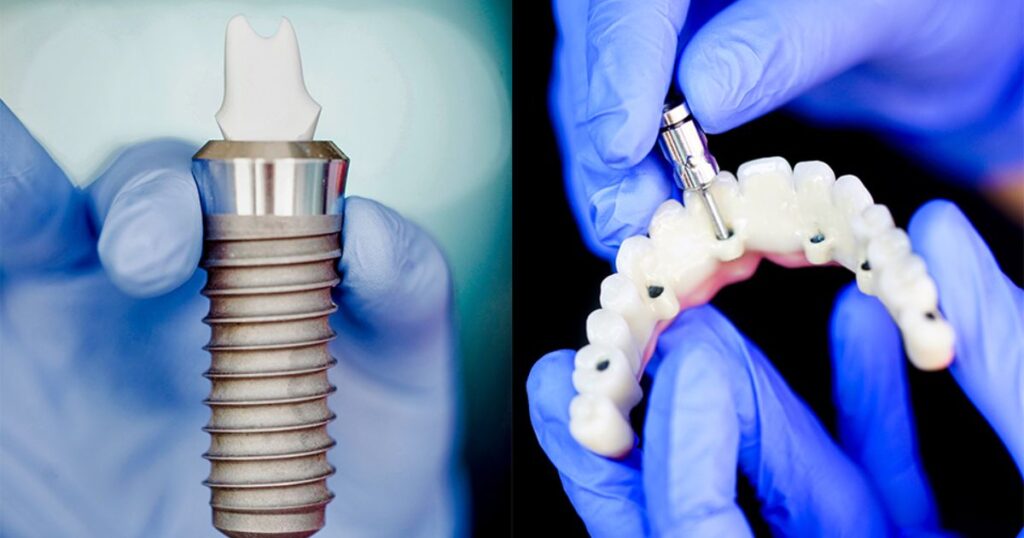
When considering the cost of full mouth dental implants, it’s essential to weigh the expenses against alternative treatment options. While traditional dentures or partials may initially appear more affordable, their long-term costs, including maintenance and replacement, can add up over time. Additionally, these alternatives may not offer the same level of stability, comfort, and aesthetic appeal as dental implants.
The Role of Dental Insurance in Full Mouth Dental Implant Costs
Dental insurance coverage for full mouth dental implants varies depending on the specific policy and provider. While some plans may offer partial coverage for implant procedures, others may classify implants as elective or cosmetic procedures not covered under standard policies. Patients are encouraged to review their insurance policies carefully and inquire with their insurance provider about coverage options for dental implants.
Making Informed Decisions About Full Mouth Dental Implants
Ultimately, the decision to undergo full mouth dental implant treatment involves careful consideration of various factors, including cost, benefits, and individual preferences.
By educating themselves about the intricacies of dental implant procedures and consulting with qualified dental professionals, individuals can make well-informed decisions that align with their oral health goals and financial circumstances.
Factors Affecting Dental Implant Costs
The cost of dental implants is influenced by several key factors that contribute to the overall expense of the procedure. Firstly, the number of implants needed significantly impacts costs, with more extensive cases requiring multiple implants resulting in higher expenses.
Secondly, the complexity of the case plays a crucial role, as factors like bone quality, pre-existing dental conditions, and the need for additional procedures such as bone grafting or sinus lifts can increase the overall cost. Moreover, the geographic location of the dental practice also affects pricing, with practices in metropolitan areas typically charging higher fees compared to those in rural areas.
The necessity for any additional procedures alongside implant placement, such as diagnostic imaging or pre-implant treatments, further adds to the total cost. Understanding these factors is essential for individuals considering dental implant treatment, as it allows for a comprehensive evaluation of potential expenses and helps in making informed decisions regarding their oral health investment.
Number of Implants Needed
The total cost of dental implants is heavily influenced by the number of implants required to replace missing teeth. Whether it’s a single missing tooth or an entire arch, each implant incurs its own cost. Therefore, individuals requiring multiple implants can expect higher overall expenses compared to those needing only one or two implants.
Complexity of the Case
The complexity of the dental implant procedure plays a significant role in determining costs. Factors such as the condition of the jawbone, the need for bone grafting or sinus lifts, and any pre-existing dental issues can impact the complexity of the case. More complex cases often require additional procedures and expertise, resulting in higher overall costs.
Location of the Dental Practice
Dental implant costs can vary based on the geographic location of the dental practice. Practices located in metropolitan areas or regions with a higher cost of living typically charge higher fees for their services. Conversely, practices in rural or less densely populated areas may offer lower prices. Patients should consider the location when estimating their potential expenses for dental implants.
Additional Procedures
In some cases, patients may require additional procedures alongside dental implant placement to ensure optimal outcomes. These procedures, such as bone grafting to augment insufficient jawbone volume or sinus lifts to create space for implants in the upper jaw, can significantly increase the total cost of treatment. Patients should discuss the need for any additional procedures with their dentist during the treatment planning phase.
Components of Dental Implant Costs
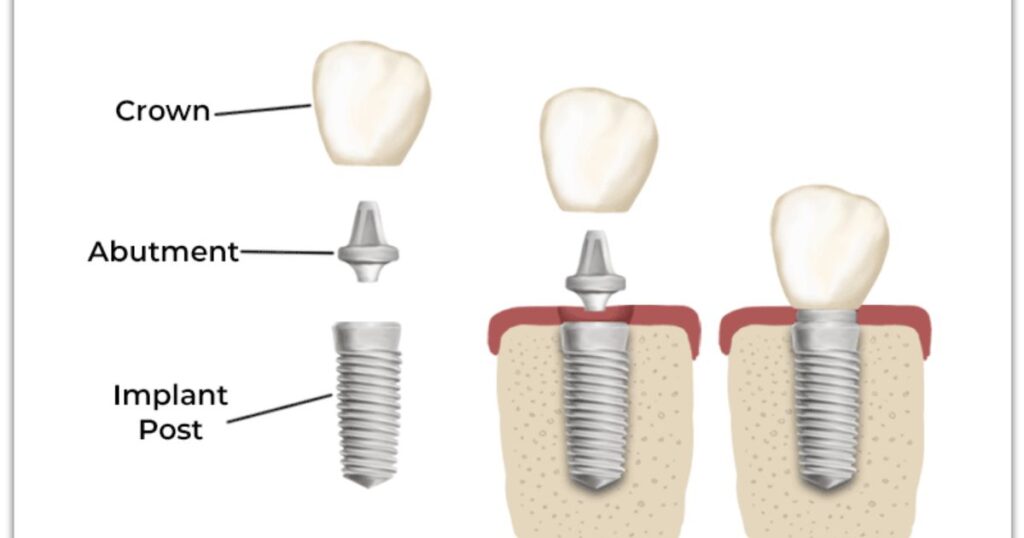
The cost of dental implants comprises various components that collectively contribute to the overall expense of the procedure. Firstly, the implant fixture itself, surgically placed into the jawbone to serve as a replacement for the tooth root, accounts for a significant portion of the total cost. Factors such as the material of the implant fixture, whether titanium or zirconia, and the brand or manufacturer chosen can influence its price.
The abutment, which connects the implant fixture to the dental crown or prosthesis, contributes to the cost. Abutments come in different materials and types, each with its own associated expense. Furthermore, the dental crown or prosthesis, the visible part of the implant that resembles a natural tooth, adds to the overall cost. The material used for the crown, its complexity, and customization play a role in determining its price.
Diagnostic imaging and pre-implant procedures, such as X-rays, CT scans, tooth extractions, or bone grafting, are also essential components that contribute to the total cost of dental implant treatment. Understanding these components helps patients grasp the breakdown of expenses involved in dental implant procedures and aids in making informed decisions regarding their oral health investment.
Implant Fixture
The dental implant fixture, which is surgically placed into the jawbone to serve as a replacement for the tooth root, accounts for a significant portion of the total cost. The materials used, such as titanium or zirconia, and the brand or manufacturer of the implant fixture can affect its price.
Abutment
The abutment is the connector piece that attaches to the implant fixture and supports the dental crown or prosthesis. Abutments come in various materials, including metal, porcelain, and zirconia, each with its own associated cost. Additionally, custom-made or prefabricated abutments may incur different expenses.
Dental Crown or Prosthesis
The dental crown or prosthesis is the visible portion of the dental implant that resembles a natural tooth. The material used for the crown, such as porcelain or ceramic, as well as its complexity and customization, can influence its cost. Patients may choose from various options, including traditional crowns, implant-supported bridges, or full-arch implant-supported dentures.
Diagnostic Imaging and Pre-Implant Procedures
Diagnostic imaging, such as X-rays, CT scans, or intraoral scans, is essential for accurate treatment planning and implant placement. Additionally, pre-implant procedures such as tooth extractions, bone grafting, or periodontal treatments may be necessary to prepare the mouth for implant placement. These diagnostic and pre-implant procedures contribute to the overall cost of dental implant treatment.
Evaluating the Total Cost of Dental Implants
When considering dental implant treatment, it’s essential for patients to thoroughly evaluate the total cost involved to make informed decisions about their oral health investment. This evaluation encompasses several key aspects. Firstly, patients should consider the consultation and treatment planning phase, where the dentist assesses oral health, discusses treatment options, and develops a personalized plan.
The cost of these initial consultations and planning sessions may be included in the overall treatment cost. Additionally, patients should factor in follow-up care and maintenance, including check-ups, cleanings, and potential repairs or adjustments, to ensure the longevity and success of their implants.
Moreover, financing options and insurance coverage play a crucial role in managing costs. Patients can explore payment plans, healthcare credit cards, or financing through third-party providers to make dental implants more affordable.
Some dental insurance plans may offer partial coverage for implant procedures, depending on the policy and coverage limits. By thoroughly evaluating all these factors, patients can gain a comprehensive understanding of the total cost of dental implants and make informed decisions that align with their oral health goals and financial circumstances.
Consultation and Treatment Planning
Before undergoing dental implant treatment, patients typically undergo a consultation and treatment planning process with their dentist or oral surgeon. During this phase, the dentist assesses the patient’s oral health, discusses treatment options, and develops a personalized treatment plan. The cost of the initial consultation and treatment planning is often included in the overall cost of dental implant treatment.
Follow-Up Care and Maintenance
After dental implant placement, patients require follow-up care and maintenance to ensure the longevity and success of their implants. This may include periodic check-ups, professional cleanings, and adjustments or repairs as needed. Patients should factor in the cost of follow-up care and maintenance when evaluating the total cost of dental implants over time.
Financing and Insurance Coverage
Many dental practices offer financing options to help patients manage the cost of dental implant treatment. Patients can explore payment plans, healthcare credit cards, or financing through third-party providers to make dental implants more affordable.
Some dental insurance plans may provide partial coverage for implant procedures, depending on the specific policy and coverage limits. Patients should review their insurance coverage and financing options with their dental provider to determine the best approach for managing the cost of dental implants.
FAQ’s
How much is a full top set of dental implants?
The cost of a full top set of dental implants typically ranges from $20,000 to $40,000 or more, depending on factors such as the number of implants needed and the complexity of the case.
How many implants do you need for full teeth?
Typically, around 4 to 8 implants are needed for a full set of teeth.
What is the most expensive part of a dental implant?
The implant fixture, which replaces the tooth root, is usually the most expensive part.
